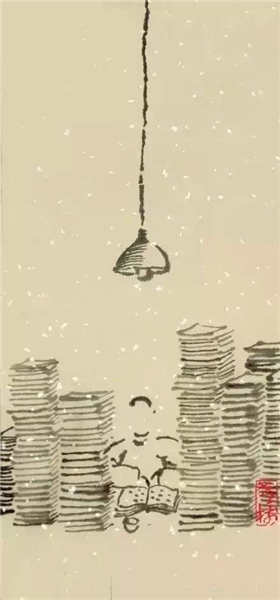 |
|
[Photo provided to China Daily] |
Most scenarios in Lao Shu's paintings have a touch of the unworldly amid mundane depictions of daily life. In another painting, Mr Minguo is shown leaving a farmer's market with a Chinese cabbage in his arms, close to his body, as if holding a bouquet to give to his lover. The verse for the painting reveals Mr Minguo's internal monologue: "Coming into the farmer's market, I catch sight of a cabbage. It looks smooth and tender. I take it home to love."
One critic said having a poem along with a painting suggests that the painting is not powerful or expressive enough by itself.
Lao Shu disagrees. "Painting," he says, "is a visual expression. A poem is a conceptual expression. In classical Chinese brush painting - the most prestigious form of Chinese art, and the province of the literati for centuries - a poem, some calligraphy and the drawing always go together. The relationship of text to the painting is not one interpreting the other. Rather, it's that one is complementing the other. Like the relationship of a pair of chopsticks to a rice ball, the chopsticks cannot make a rice ball larger, and the rice ball cannot provide the chopsticks with any rice. Yet, a rice ball and a pair of chopsticks can be artistically matched perfectly."
Indeed, Lao Shu's work is a new take on literati painting that has changed something innate in the medium.